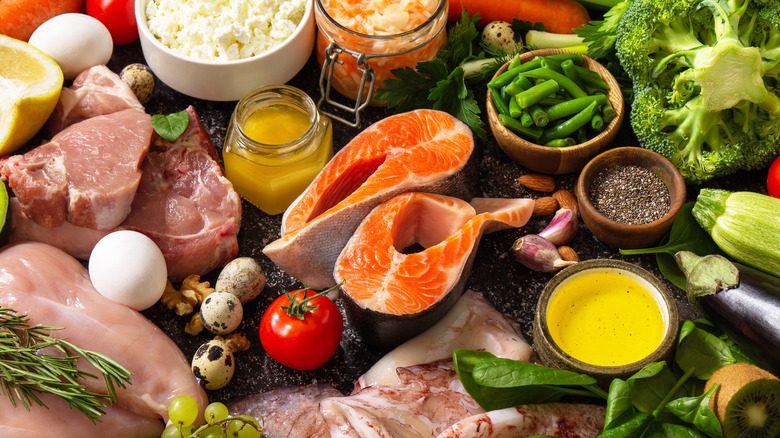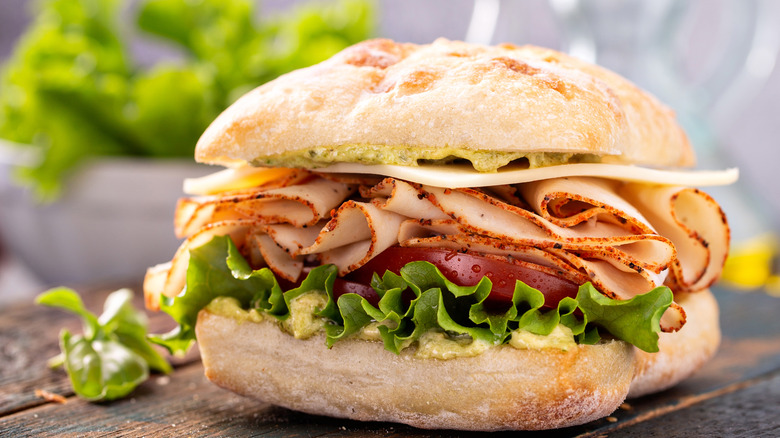This Is The Difference Between Complete And Incomplete Proteins
What do steak and chickpeas have in common? Protein. The obvious contrast between them is that they fall into separate menu sections. But although one is a plant and the other eats plants, each of them adds value to a healthy diet. WebMD says that protein is responsible for building muscle, healing tissues, and repairing skin. This nutrient is a fusion of 20 organic elements called aminos. Our body makes 11 of them naturally, leaving our diet to provide us with the other nine essential aminos.
According to Better Health Channel, our age, health, and exercise routine all determine how much protein our body requires. But what many don't know is that not all protein comes from meat, and most phyto-proteins aren't complete.
Incomplete plant proteins — like whole grains, chickpeas, or black beans — get their nutrients from the sun and soil. The standard among vegans and vegetarians is to combine incomplete plant proteins to make one complete protein. For example, you might try eating beans and rice or chickpeas with quinoa. Nutrition experts say that's not necessary (via Cleveland Clinic). Dr. Michael Greger from Nutrition Facts confirms that "Plant-based consumers do not need to be at all concerned about amino acid imbalances ... from the plant-food proteins that make up our usual diets." So, does the difference between complete and incomplete proteins really matter?
The benefits of plant and animal proteins
Complete proteins are a one-stop shop. If you enjoy eggs, turkey, or dairy regularly, you're probably getting more than enough (per WebMD). Animal proteins hold all 9 of the essential amino acids our body is unable to produce. However, there are two sides to every coin. Many arguments have disputed whether red meats or lean meats are the healthiest protein source. The American Heart Association settled this by affirming that skinless chicken, fish, and turkey have less saturated fat compared to beef, lamb, and pork. Less "sat fat" means a more heart-healthy diet.
If you're considering a plant-based lifestyle, another myth is the idea that vegans or vegetarians will always lack protein. Healthline says that's not quite right. After digestion, the broken down aminos head to an amino "pool," where they are distributed as needed (via Precision Nutrition). So technically, the only way to lack protein is to not eat it at all.
A well-rounded diet offers a variety of lean proteins and whole foods. Animal protein in moderation is nutritious, and plant-based proteins offer heart health benefits. A recent Jama Network study concluded, "... higher plant protein intake was associated with small reductions in risk of overall and cardiovascular disease mortality." Both complete and incomplete proteins have benefits that nourish the body. Although studies show plant protein is healthier, eating a variety of proteins may prove to be best. Choose your preference according to your diet and lifestyle.


